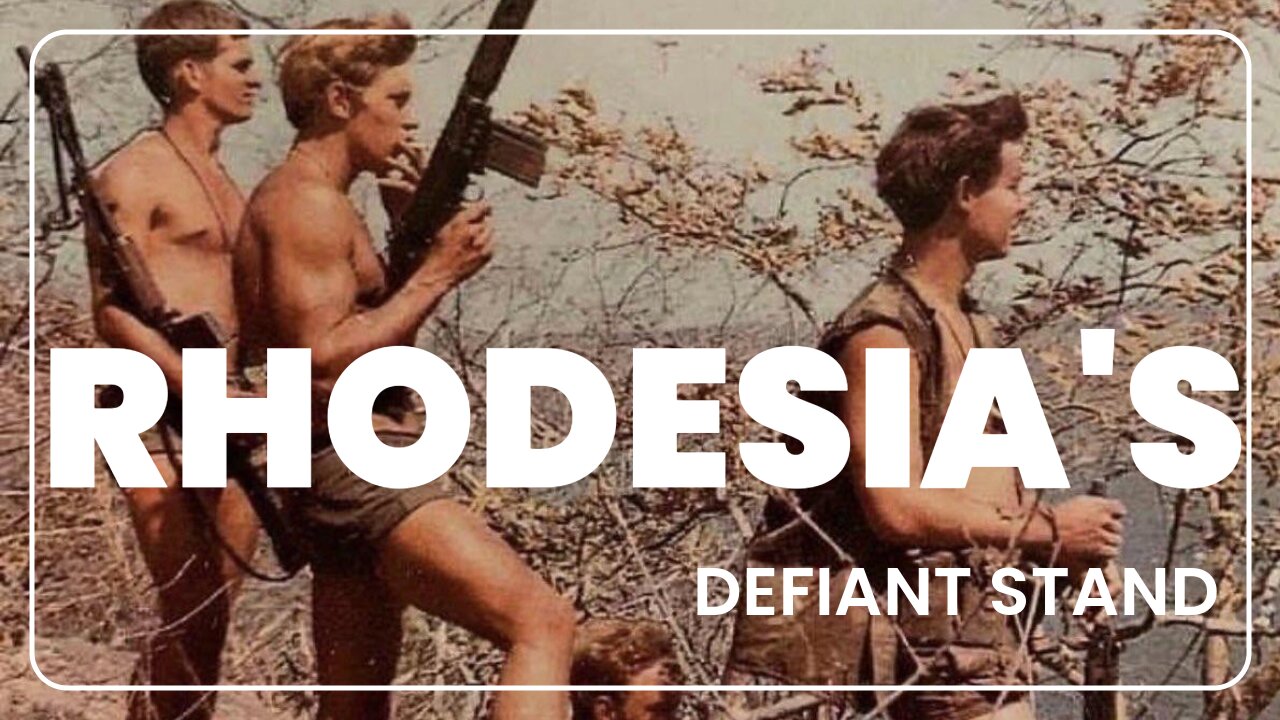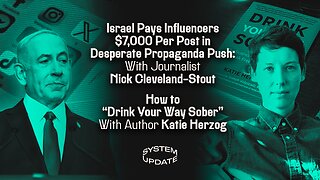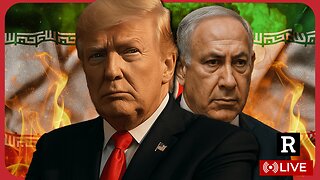Premium Only Content

Rhodesia’s Defiant Stand: A Colony’s Journey to Collapse
For nearly six decades, Rhodesia stood as a self-governing British colony and later an unrecognized state, embroiled in a dramatic struggle for power, identity, and survival. From its colonial roots to its ultimate dissolution in 1980, the story of Rhodesia is one of ambition, resistance, racial tensions, and a struggle for power —ending with the birth of modern Zimbabwe.
In the late 19th century, British expansion in Africa was at its peak. In 1888, Cecil Rhodes—a mining magnate with grand imperial dreams—secured land and mineral rights from local African chiefs. With this leverage, he obtained a royal charter in 1889, forming the British South Africa Company (BSAC).
This private company became the driving force behind the colonization of the land soon known as Southern Rhodesia, named in Rhodes’ honor.
By 1895, European settlers arrived in droves, lured by the promise of land and gold. But expansion came at a price—bloody conflicts with indigenous Africans. The First and Second Matabele Wars violently crushed local resistance, solidifying British control over the territory.
Then, in 1923, Rhodesia transitioned from corporate rule to a self-governing colony under the British Crown. Settlers rejected unification with South Africa, opting instead for a system where political power remained firmly in the hands of a white minority—less than 5% of the population. Their control was enforced through strict voting restrictions, ensuring that the African majority had little say in their own governance. The economy thrived on agriculture, particularly tobacco, and mining, but prosperity was unevenly distributed, fueling resentment among the African majority.
In 1953, Britain attempted to unite the region by forming the Federation of Rhodesia and Nyasaland, linking Southern Rhodesia with Northern Rhodesia (Zambia) and Nyasaland (Malawi). The goal? Economic collaboration and containment of rising African nationalism. But instead of unity, tensions grew. By 1963, the federation collapsed under pressure from nationalist movements, leaving Southern Rhodesia increasingly isolated.
As independence movements swept across Africa, Britain pushed for majority rule in Rhodesia. But the white-led government, led by Prime Minister Ian Smith, refused to yield. On November 11, 1965, Smith made a bold and unprecedented move—the Unilateral Declaration of Independence (UDI). Rhodesia became the first British colony to declare independence without British approval since the American Revolution.
The world, however, refused to recognize this breakaway state. Britain and the United Nations imposed harsh economic sanctions, but Rhodesia found allies in apartheid South Africa and Portuguese-controlled Mozambique, allowing it to survive through much of the 1960s and early 1970s.
UDI set the stage for a brutal guerrilla conflict. African nationalist groups—ZANU, led by Robert Mugabe, and ZAPU, led by Joshua Nkomo—launched a sustained insurgency against the Rhodesian government. The Rhodesian Bush War raged from the mid-1960s, with fighters backed by global superpowers—ZANU Marxist-inspired forces aligned with China, and ZAPU with the Soviet Union.
By the 1970s, the war had reached a breaking point. Rhodesian security forces, though effective militarily, faced mounting international pressure and dwindling resources. Civilians were caught in the crossfire, and brutal tactics, including forced relocations, fueled global condemnation.
By 1979, it was clear that Rhodesia could not endure. Britain brokered negotiations at Lancaster House, leading to a peace agreement that dismantled Rhodesia. In 1980, elections were held, and Mugabe’s ZANU achieved a decisive victory.
On April 18, 1980, Rhodesia officially ceased to exist—replaced by the newly independent nation of Zimbabwe. The white exodus that followed marked the end of an era defined by colonial ambition and racial division, leaving a complex legacy in southern Africa’s history.
-
 1:10:18
1:10:18
Glenn Greenwald
5 hours agoIsrael Pays Influencers $7,000 Per Post in Desperate Propaganda Push: With Journalist Nick Cleveland-Stout; How to "Drink Your Way Sober" With Author Katie Herzog | SYSTEM UPDATE #525
87.2K97 -
 38:54
38:54
Donald Trump Jr.
9 hours agoDems' Meme Meltdown, Plus why California Fire Victims should be more Outraged than Ever | TRIGGERED Ep.279
108K82 -

megimu32
2 hours agoOn The Subject: Meg’s Birthday Bash! 🎂🎶
15.2K11 -
 23:47
23:47
Jasmin Laine
7 hours agoALL HELL BREAKS LOOSE—Eby MELTS DOWN While Poilievre CORNERS Carney
12.9K14 -
 LIVE
LIVE
SpartakusLIVE
5 hours agoNEW Black Ops 7 BETA || WZ too! And PUBG later?
220 watching -
 1:00:02
1:00:02
BonginoReport
7 hours agoTerror Strikes Manchester Again - Nightly Scroll w/ Hayley Caronia (Ep.147)
82.8K55 -
 9:36:57
9:36:57
Reidboyy
11 hours ago $0.47 earnedBIRTHDAY BETA STREAM!!!
22K -
 2:05:44
2:05:44
Redacted News
7 hours agoHIGH ALERT! US AND ISRAEL SPEEDING TOWARD WAR WITH IRAN, INFLUENCERS BEING PAID $7,000 PER POST
159K65 -
 1:46:54
1:46:54
Mally_Mouse
4 days ago🎮 Throwback Thursday! Let's Play: Kingdom Hearts 1 pt. 1
13.2K2 -
 2:04:02
2:04:02
Quite Frankly
11 hours agoHidden History, The Culture War, Games We Play | Nerdrotic 10/2/25
29.6K3
